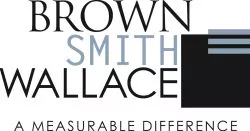A federal district court has concluded that an employer who classified its workers as independent contractors was entitled to relief under Section 530 of the Revenue Act of 1978 (Nelly Home Care, DC-Pa., May 10, 2016). As a result, the employer did not owe employment taxes for the period at issue. (The court did not determine whether the workers were actually contractors or employees, but rather that the employer was not liable for the employment taxes.)
Classification of individuals as employees or independent contractors is a crucial issue. Employers seek to avoid liability for FICA, FUTA and income tax withholding by treating workers as independent contractors. If the IRS determines retroactively that the employer should have treated its workers as employees, the employer will be liable for substantial employment taxes.
Section 530, which is not a section of the Internal Revenue Code, provides safe harbors that allow a taxpayer to avoid liability for employment taxes for a prior period, even though the IRS's determination was correct and the employer's workers should have been classified as employees. Under Section 530, an employer can qualify for relief if it demonstrates that it relied on: (1) judicial precedent, published rulings, technical advice, or a letter ruling with respect to the taxpayer; (2) a past IRS audit that did not change the classification of its workers; or (3) long-standing industry practice of a significant segment of the employer's industry (the "statutory" safe harbors). In addition, an employer with a reasonable basis for not treating workers as employees is also entitled to relief (the "reasonable basis" safe harbor).
In the Nelly Home Care case, the taxpayer contracted with approximately 35 workers to provide homecare services to elderly clients. The employer asserted that it did not control the employees or provide training, but it did provide worker's compensation insurance. The IRS on audit determined that the workers were employees.
The district court concluded that, although the taxpayer did not satisfy the statutory safe harbors, it had a reasonable basis for its treatment of the workers. The taxpayer noted that similar employers treated their workers as independent contractors. The taxpayer also reasonably relied on an earlier IRS audit of the taxpayer's personal income tax. Because the IRS had analyzed the taxpayer's business practices and reviewed a number of business documents, including the contracts with the workers, the taxpayer could conclude that the IRS had acquiesced to its treatment of the workers.
If you have questions about classifications, please contact your tax advisor or Allison Jasper, Manager, Tax Services, at 314.983.1276 or ajasper@bswllc.com.
The content of this article is intended to provide a general guide to the subject matter. Specialist advice should be sought about your specific circumstances.

